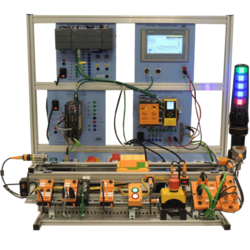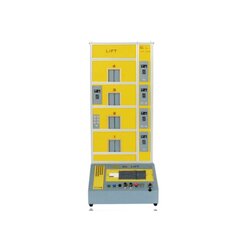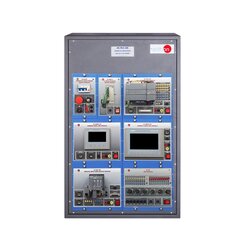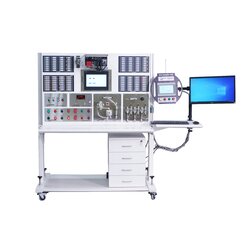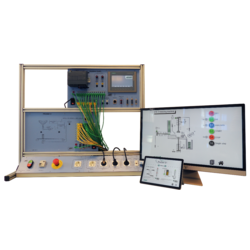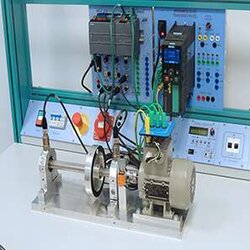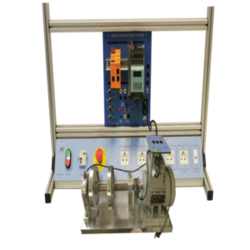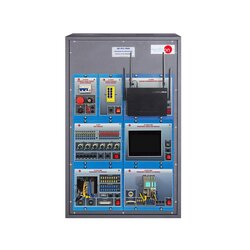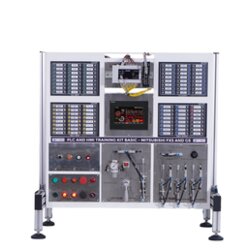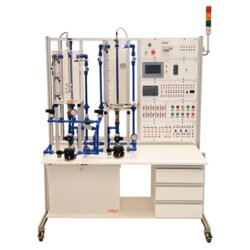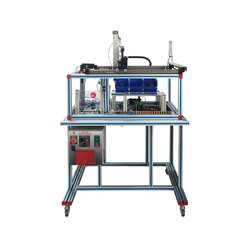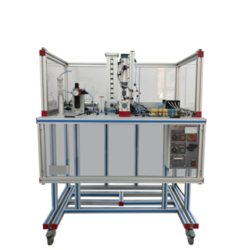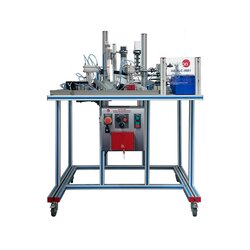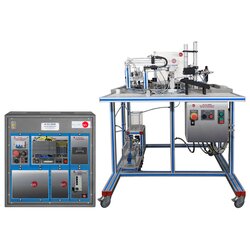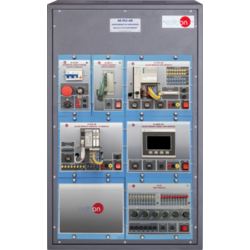PLC training Rigs, Systems & Equipment
Sort by
Learn more about PLC Training Rigs
In this section you will learn more about PLC training rigs and different instructional tools, and how they are used to teach learners about industrial automation.
What is a PLC?
A PLC is a Programmable Logic Controller, a rugged computer designed with inputs and outputs (I/O) in a durable casing housing the processor.
PLCs are modular devises which can be combined and networked into hundreds or thousands of inputs and outputs while controlled by other PLCs or SCADA systems.
They are designed to be used in industrial settings such as manufacturing, power generation & distribution, building automation, defense industry and much more.
Why teach PLC programming?
With the megatrend of increased automation of industry, the need for qualified PLC technicians is quickly growing. Many companies are looking to increase efficiency and competitiveness through faster, more flexible, and smarter operations through industrial automation.
The average salary for a PLC programmer in the USA is about $79,494 annually with good benefit packages. These jobs are sought after but still the demand from employers is higher than the supply or the trained workforce.
Therefore, we should teach PLC programming because the career prospects are good and the jobs available offer a good pay and benefit packages.
How to learn PLC programming
To become a PLC technician or a PLC programmer one can get trained at colleges, polytechnics or universities, normally in a two- or three-year associates degree.
Some of the manufacturers also provide training with credentials such as certificates of completion of different knowledge programs.
Also, some professional associations such as Electronics Technicians Association, Association for Advancing Automation, and the Manufacturing Skills Standards Council, have their own training systems including certificates.
Best practice teaching PLC
As with any type of vocational skills its very important to learn them in a hands-on manner, since that triggers engagement, increases content retainment, favors critical thinking, and increases future workplace safety.
PLC is best taught when integrated with study areas of mechanics, electronics and process controls, and should also cover concepts such as hydraulics, pneumatics, robotics, scada, electrical circuits, electrical machinery, and human-machine interfaces.
It is also important for a future PLC technician to understand the importance of jurisdictional or site-specific codes and regulations so if this can be somehow integrated with the coursework that is preferrable.
Any program for PLC technicians or programmers should aim to foster critical thinking, manual dexterity, mechanical aptitude, attention to detail, strong problem-solving skills, communications, and mathematical and scientific aptitude.
What is a PLC training rig?
A PLC training rig is a technical training system, or a piece of equipment used for teaching students about programmable logic controllers.
The aim of a PLC training rig is to help the trainers and educators to introduce learners to PLCs and industrial automation in a hands-on manner, so that the student can learn while doing.
Most PLC training rigs can be equipped with PLCs from different types of manufacturers, such as Rockwell, ABB, Siemens, Schneider Electric, Honeywell, Panasonic, Eaton, Bosch Rexroth etc.
Mostly PLC training rigs are used in technical schools, community colleges, TVET colleges, polytechnics, universities or vocational training centers.
PLC Simulators
PLC simulators are online digital tools designed to teach the same concepts as the PLC training rigs, but in a digital environment. While this approach lacks the hands-on experience provided by real training equipment, it offers other types of benefits such as training “wherever and whenever” suitable for students. Many training institutions use PLC simulators as a complement to their physical training center.
Factory I/O
Factory I/O is a PLC simulator built by Portuguese company Realgames and it offers an automation sandbox where users can build and simulate industrial systems with common automation technologies.
PLCLogix
